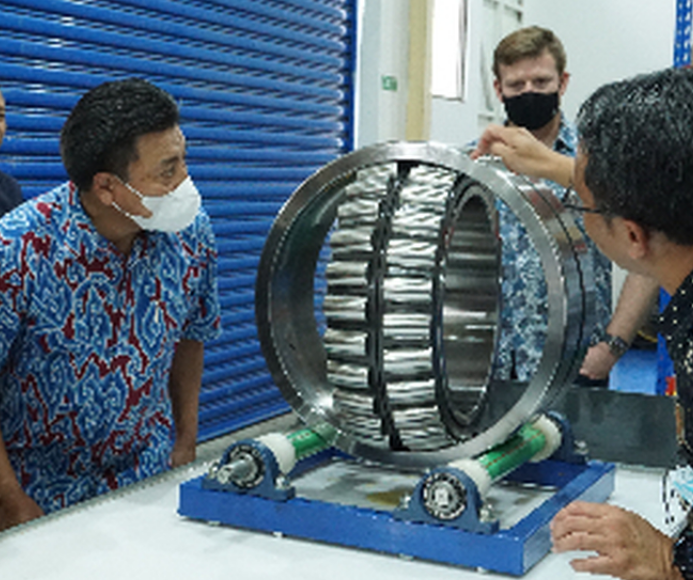Welcome to Sino Bearings web
24x7 HOTLINE:+86-28-81454188

 TECHNOLOGY
TECHNOLOGY
In the wake of climate crisis mitigation, the private sector is critical to creating innovative and technological solutions, as well as providing resources to meet our global environmental challenges. The business sector is encouraged to scale up its realization of the transformational action needed and to reflect the implementation of the Sustainable Development Goals in 2030.
A number of Indonesian companies have ramped up their efforts to mitigate the climate crisis through business diversification, circularity, and responsible production. One of them is APRIL Group.
The Riau-based company is committed to implementing science-based solutions to reduce carbon emissions and boost their circularity by teaming up with the local arm of the Swedish bearing manufacturing firm SKF Indonesia to remanufacture the bearings used at APRIL’s pulp and paper mill facility.
Every bearing has a life span, depending on how often the companies replace them with new ones and discard what’s left. If a bearing’s lifespan comes to an end, companies would usually purchase similar bearings. However, this would lead to higher costs for the said companies, while also producing more carbon footprint since bearings are primarily made from steel, which is carbon-intensive to extract and manufacture.
The SKF facility is capable of remanufacturing large bearings with the same quality and standard as a new one but uses significantly less steel and energy.
Remanufacturing means the rebuilding of a product to the specifications of the original manufactured product using a combination of reused, repaired, and new parts. This would help slash carbon emissions.
SKF has recently conducted a trial on the remanufacturing of six bearings that were used in APRIL’s mill. The paper producer reported that the remanufactured bearings performed just like new ones. The remanufacturing process has the potential to extend the bearing's lifespan by up to three cycles, resulting in increased productivity and reduction in APRIL’s production cost. A longer lifespan and reusability would also mean a driver for circularity, as the APRIL will be able to use the bearing much longer with minimum waste.
APRIL and SKF's common goals show how companies can collaborate and support each other's decarbonization journey. This will help pave the way for the government's goal of achieving net zero emissions by 2060 or sooner. The government has also recently improved its nationally determined contribution (NDC). Indonesia now aims to reduce carbon emissions by 31.89 percent from previous 29% (unconditionally) in 2030.
"Our longstanding relationship with SKF is an example of how we value collaboration with our business partners, especially those with similar climate ambitions. Their sustainability agenda complements our APRIL2030 sustainability commitment by providing us with more circular product offerings to reduce our carbon emissions," Sihol Aritonang, the President Director of APRIL Group subsidiary Riau Andalan Pulp and Paper (RAPP), said, during a visit to SKF earlier this week.
In 2020, the PaperOne producer announced a decade-long sustainability commitment—APRIL2030— with an overarching aim to make positive impacts on climate, nature, and people by 2030. APRIL aims to build their business more productive, diversified, and circular as part of responsible production.